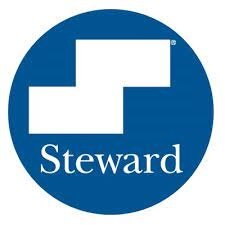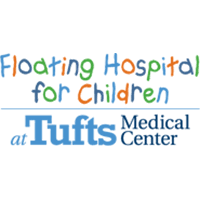“THE BRAIN is wider than the sky,
For, put them side by side,
The one the other will include
With ease, and you beside.
The brain is deeper than the sea,
For, hold them, blue to blue,
The one the other will absorb,
As sponges, buckets do.”

Mission statement
At Neuropsychological Assessment Clinic, our mission is to provide all patients with comprehensive assessment and psychotherapy in a safe and inclusive environment. We deeply value the collaborative process and work closely with patients, caregivers, guardians, family members, and providers to ensure that our patients receive the care they deserve. Our commitment is to provide personalized care that is tailored to each patient's unique needs and circumstances, using the latest research and evidence-based practices. Our goal is to empower our patients to achieve their full potential and improve their quality of life, while respecting their autonomy, dignity, and privacy. We strive to create a culture of excellence, professionalism, and compassion, where everyone is treated with respect, kindness, and empathy.
Services Provided
We provide private, discrete neuropsychological assessment and consultation services for children and adults.
Comprehensive Neuropsychological Assessment (ages 6+)
For ages 2-6 intake interview must be scheduled to determine appropriateness for full evaluation.
Psychodiagnostic Assessments
Cognitive Rehabilitation
Forensic independent medical evaluations (IMEs)
Academic and learning evaluations for accommodations for college, standard testing (SAT, GRE, law boards, etc.)
Anxiety Treatment
Couples and Marriage Counselling
Premarital Counselling
Proudly affiliated with and servicing patients from Tufts, St Elizabeth and BMC hospitals
People who are facing a challenge or difficulty in learning, behavior, or development, want to gain an understanding of their strengths and weaknesses and how well they are coping with illness. They also want to know how to move ahead with practical solutions. Comprehensive neuropsychological testing and assessment can help a person do this.
Typical concerns of patients include:
Attention Deficit Disorder (ADD/ ADHD)
Problems with executive functioning
Learning style versus disability
Child evaluations for suspected ASD (Autistic spectrum disorder)
Cognitive problems secondary to psychiatric disorders
Cognitive changes following head injury, lead poisoning
Dementia Evaluation / Diagnosis
The results of the evaluation will be reviewed with every patient once the evaluation is completed. At that time, the assessment report will be reviewed in detail. Patients receive a prompt written report written in easy to understand language with clear and practical recommendations.
Neuropsych Evaluation
Pathway To Success: Organizational Support for Adults
Weekly Group Cognitive-Behavioral Skills Sessions for Adults
Learn and practice skills in one-on-one sessions
Morning and Evening sessions are available
8-12 weekly sessions
Who would benefit from Cognitive Rehabilitation Support:
The sessions are designed to assist individuals who experience cognitive difficulties (such as poor memory and attention) and difficulties with day to day functioning (like work, relationships, and independent living). The sessions can help individuals with depression, schizophrenia and bipolar disorder, it is also applicable to individuals who experience cognitive impairments due to a range of other conditions, including acquired brain injuries like stroke and traumatic brain injury.
Learn to:
Improve attention
Design and organize your life
Cope with academic challenges
Eliminate obstacles that drain your time
Keep track of tasks and develop achievable goals and plans
Regulate strong emotions
Reduce stress and anxiety
Interested?
For more information contact us at (617) 383-7804 or boston@npevaluation.com
Memory and Aging Group Therapy for Older Adults
Problems with everyday memory – retaining new information, remembering distant memories, and upcoming tasks – can significantly disrupt daily living. For example, difficulties with remembering what you intend to do can affect the completion of daily tasks and hinder independent living. Such concerns are commonly reported by individuals with neurological conditions like a traumatic brain injury.
Neuropsychological interventions like memory training have been shown to enhance the functional memory abilities of individuals recovering from neurological conditions. Moreover, consistent practice of strategies has resulted in functional brain changes.
There are two options for skills training:
Once a week one-hour group sessions for six weeks
Once a week individual sessions to tailor program content to your specific needs and goals
Content includes:
Compensatory strategies – using mental strategies and external aids to improve memory.
Improving functional memory processes, such as attention, encoding, storage and retrieval.
Psychoeducation - to increase understanding of memory problems, promoting self-awareness and self-efficacy.
The program was designed to assist individuals with everyday memory problems, specifically those with nonprogressive neurological disorders. These conditions include traumatic brain injury, epilepsy, and stroke. The training sessions can also be applied to individuals who experience everyday memory problems, without a neurological condition.
Weekly Individual Cognitive-Behavioral Skills Sessions for Older Adults
Learn and practice skills in one-on-one sessions
Morning and Evening sessions are available
8-12 weekly sessions
Learn to:
Understand normal aging process
Develop a healthy attitude about memory
Use mental strategies to improve memory
Organize environment to learn information better
Interested?
For more information contact us at (617) 383-7804 or boston@npevaluation.com
Memory and Aging Individual Therapy








